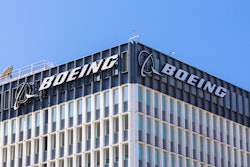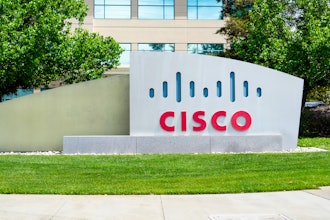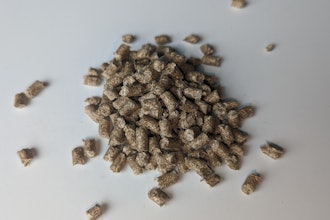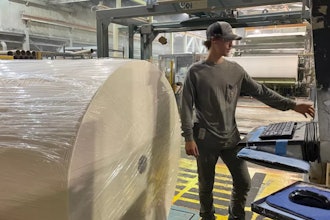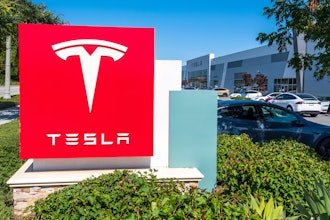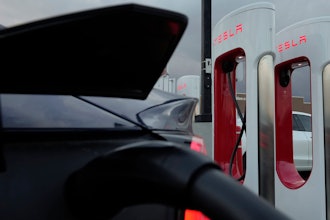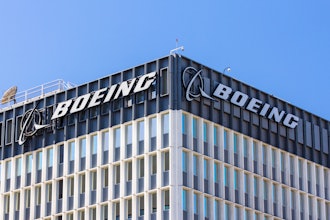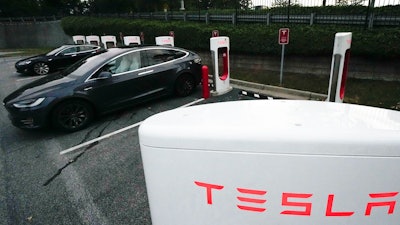
DETROIT (AP) — Tesla's net income more than doubled last quarter thanks to a big one-time tax benefit, but it warned of "notably lower" sales growth this year.
The Austin, Texas, electric vehicle, solar panel and battery maker said Wednesday that its net income was $7.93 billion from October through December, compared with $3.69 billion a year earlier.
But excluding one-time items such as the $5.9 billion noncash tax benefit for deferred tax assets, the company made $2.49 billion, or 71 cents per share. That was down 39% from a year ago and short of analyst estimates of 73 cents per share according to FactSet.
Chief Financial Officer Vaibhav Taneja said the change in asset valuation would raise the company's taxes.
Tesla reported quarterly revenue of $25.17 billion, up 3% from a year earlier but also below analyst estimates of $25.64 billion.
Profits were off because Tesla lowered prices worldwide through the year in an effort to boost its sales and market share.
Earlier this month Tesla reported that fourth-quarter sales rose by almost 20%, boosted by steep price cuts in the U.S. and worldwide through the year. Some cuts amounted to $20,000 on higher priced models.
Shares of Tesla Inc. fell 6% in trading after the markets closed Wednesday. So far this year, Tesla shares are down about 16%.
Tesla's sales growth rate was slower than previous quarters. For the full year, it sales rose 37.7%, short of the 50% growth rate that CEO Elon Musk predicted in most years. The company reported deliveries of 484,507 for the quarter and roughly 1.8 million for the full year.
In its letter to shareholders released Wednesday, Tesla cautioned that sales growth this year may be "notably lower" than the 2023 growth rate, as it works to launch a more affordable next-generation vehicle at a factory near Austin.
The company, the letter said, is between two big growth waves, one from global expansion of the Models 3 and Y, and a second coming from the new vehicle.
On a conference call with analysts, Musk said Tesla expects to begin producing the new vehicle toward the end of 2025. Revolutionary manufacturing techniques that require innovative equipment will require engineers to be "living on the (assembly) line," Musk said.
After Austin, the company will build the new vehicles at a new plant to be constructed in Mexico, he said.
Seth Goldstein, an analyst with Morningstar Research, said Tesla's results were a mixed bag, with predictions of slowing growth in the near term, but the potential for a growing customer base when the next generation vehicle comes out.
"The affordable vehicle offers Tesla the next wave of strong growth," Goldstein said. "But it looks like it won't begin production until the end of next year at the earliest."
Until the new car ramps up, Tesla is likely to stay in a slower-growth mode, he said, estimating that the new vehicle will cost below $30,000 when it reaches Tesla stores.
Musk was asked if shareholders should be concerned about his comments on X, formerly Twitter, that he is "uncomfortable" with growing Tesla into an artificial intelligence and robotics leader without owning 25% of company shares.
Earlier this month Musk seemed to challenge the Tesla board to come up with a new compensation plan for him that would grant him more shares.
Unless he gets 25%, he wrote that he'd prefer to build products outside of Tesla, apparently with another company.
On the call, Musk explained that with a 25% stake, he can't control the company, yet he would have strong influence. But with his current stake he could be voted out on recommendations of a shareholder advisory firm. Activists that influence those firms "have strange ideas about what should be done," Musk said.
He said he was not looking for "additional economics" but wanted to be an effective steward of technology.
Musk now owns about 13% of Tesla stock after selling of much of his stake to buy X in 2022.
Tesla said the stainless-steel clad Cybertruck pickup deliveries will ramp up through this year. Also this year, revenue growth from energy storage should outpace the automotive business, the company said.
Tesla's gross profit margin fell to 17.6% for the quarter, down 6.2 percentage points from a year ago as price cuts chewed into profits.
For the full year, Tesla reported net income of almost $15 billion including the one-time tax benefit. Excluding it, the company made $10.88 billion, down 23% from 2022. Gross profit margin was 25.6% in 2022, but that dropped to 18.2% last year.
Tesla said that during the fourth quarter, it released the latest version of its "Full Self-Driving" software to employees and then selected customers who will test it. The new version uses artificial intelligence to help control steering and pedals instead of "hard coding" all driving behaviors. But the system still can't drive itself, and Tesla says owners must be ready to intervene at all times.
Musk said Tesla has had some tentative conversations with other automakers about licensing "Full Self-Driving," but no takers. "I think they don't believe it's real quite yet. I think that will become obvious probably this year," Musk said.
Tesla's "Full Self-Driving" hardware went on sale late in 2015, and Musk has used the name ever since.
In 2019, Musk promised a fleet of autonomous robotaxis by 2020, and he said in early 2022 that the cars would be autonomous that year. In April, Musk said the system should be ready in 2023.
Last January, Tesla disclosed that the Justice Department had requested documents related to its Autopilot and "Full Self-Driving" features.





